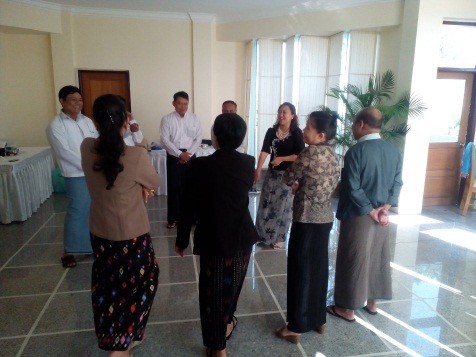
April 2014—Burma’s transition to democracy is evident in new laws and freedoms, but old ways of doing business continue to slow reform and distance citizens from their government. Burmese citizens who need support from governmental offices are often met with outmoded and archaic systems and bureaucracies that have not kept pace with reforms.
Some Burmese government ministries, especially those directly serving the public, now see the need to alter their operational structures to better serve the population. Unfortunately, government leaders and civil servants have limited experience designing and working in organizational structures that are open and accountable to the citizens they serve.
In response, on July 30 to 31, 2013, USAID’s Office of Transition Initiatives supported a workshop for the Ministry of Immigration and Population (MoIP) on establishing transparent and democratic organizational systems reflective of Burma’s transition. In partnership with the Sagawa Development Consultancy Company, a Burmese NGO, USAID delivered the Positive Organizational Change workshop for 30 senior managers in the MoIP. The workshop explained the dynamics of organizational change and how leaders can create a more effective and transparent public administration process.
Sagawa’s lead consultant, Chaw Su, said, “I am very optimistic about the genuine interests of the top leaders. Their opening speech empowered and encouraged the group to fully participate in the workshop, bringing their best ideas to the table so that we can initiate a positive change process within the ministry.”
“We like this idea and we know we need to change,” said a participating senior MoIP staff person. Through this initiative, MoIP will be a role model for other government institutions interested in demonstrating that reforms must go beyond legal revisions and must include institutional change for more accountable and democratic governance.







Comment
Make a general inquiry or suggest an improvement.